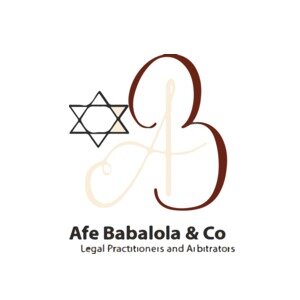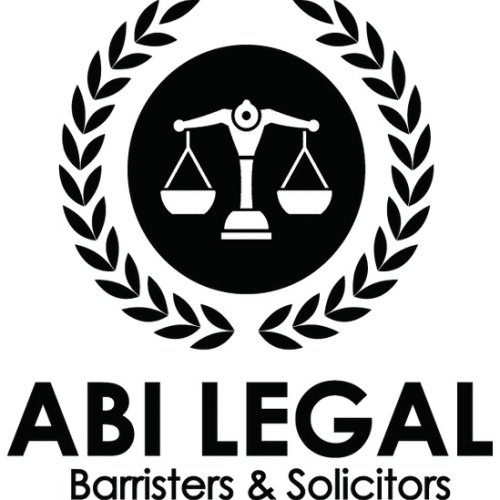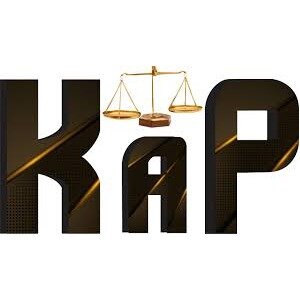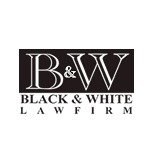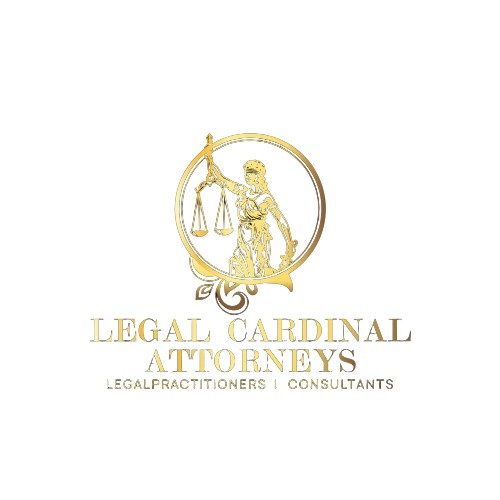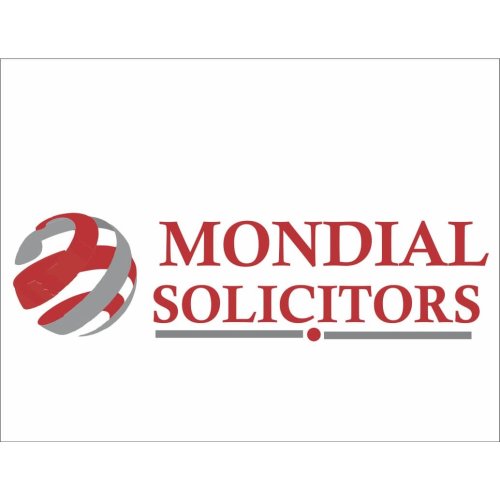Best Corporate & Commercial Lawyers in Ibadan
Share your needs with us, get contacted by law firms.
Free. Takes 2 min.
List of the best lawyers in Ibadan, Nigeria
Nigeria Corporate & Commercial Legal Questions answered by Lawyers
Browse our 1 legal question about Corporate & Commercial in Nigeria and read the lawyer answers, or ask your own questions for free.
- I’m planing to start a tech startup company in Nigerian
- What type of company am I to register and what’re the legal requirements and steps.
-
Lawyer answer by CO-dunni Law Solicitors
You would need to call us directly for a telephone consultation for us to be able to advice you accordingly. You usually would need to register first with corporate affairs commission, Federal Inland revenue service and obtain license from Central...
Read full answer
About Corporate & Commercial Law in Ibadan, Nigeria
Corporate and commercial law in Ibadan, Nigeria, regulates the formation, operation, and dissolution of businesses, as well as the legal relationships and transactions occurring between commercial entities. Ibadan, as a major commercial hub in southwestern Nigeria, hosts a variety of businesses, from small start-ups to large multinational corporations. Corporate law governs company registration, compliance, mergers, acquisitions, and governance, while commercial law covers business transactions, contracts, trading, and dispute resolution within the business environment. Understanding the legal landscape is essential for anyone looking to invest, establish, or manage a business in Ibadan.
Why You May Need a Lawyer
There are several common scenarios where engaging a lawyer experienced in corporate and commercial law is strongly recommended in Ibadan. You may need legal assistance when registering a company with the Corporate Affairs Commission, drafting or reviewing business contracts, handling shareholder agreements, or negotiating business deals. Lawyers also play a crucial role in managing legal compliance, intellectual property rights, labour matters, resolving commercial disputes, and representing businesses during regulatory investigations. If you are planning to merge with or acquire another business, or dissolve an existing company, the process can be complex and require legal guidance. A qualified corporate and commercial lawyer can help protect your interests, minimize risks, and ensure that your business operations adhere to local regulations.
Local Laws Overview
Several key legal frameworks regulate corporate and commercial activities in Ibadan, Nigeria. The Companies and Allied Matters Act (CAMA) is the principal legislation for the formation and regulation of companies. The CAMA outlines requirements for company registration, governance structures, board responsibilities, and reporting obligations. Commercial transactions are largely governed by contract law principles under Nigerian law, which require clear terms, mutual agreement, and lawful consideration.
Additionally, the Nigerian Investment Promotion Commission Act and the Industrial Inspectorate Act encourage and regulate foreign and local investments. The Nigerian Labour Act addresses employment and labour relations, while the Federal Competition and Consumer Protection Act ensures fair competition and consumer rights. Intellectual property laws, tax regulations, and anti-money laundering laws are also highly relevant. Companies operating in Ibadan must register with relevant governmental bodies and may require permits or licenses, depending on their business type.
Frequently Asked Questions
What steps are required to register a company in Ibadan?
To register a company, you must reserve a business name, prepare the company’s memorandum and articles of association, complete the necessary forms, provide identification documents, and submit your application to the Corporate Affairs Commission. Payment of prescribed fees and adherence to CAMA requirements are necessary.
Can foreigners own companies in Ibadan?
Yes, foreigners are allowed to own and operate businesses in Ibadan, provided they comply with requirements from the Nigerian Investment Promotion Commission and obtain necessary permits. Some sectors may have restrictions on foreign ownership.
What are the main types of business structures available?
The common business structures in Nigeria are sole proprietorship, partnership, private limited liability company, public limited company, and incorporated trustees for non-profit organizations. Each has unique legal and tax implications.
How can I legally resolve a business dispute?
Disputes may be resolved through negotiation, mediation, arbitration, or court proceedings. The option chosen often depends on contract terms and the nature of the dispute. Legal advice is recommended to determine the best approach.
What tax obligations do companies in Ibadan have?
Companies are subject to corporate income tax, value added tax, and may have to pay state and local government levies. Registration with the Federal Inland Revenue Service and filing annual returns is mandatory.
What should be included in a commercial contract?
A valid contract should state the parties involved, precise description of goods or services, payment terms, timelines, dispute resolution mechanisms, confidentiality, and termination clauses.
What are the director’s duties in a company?
Directors must act in the best interests of the company, exercise reasonable care and skill, avoid conflicts of interest, and comply with all legal and regulatory requirements under the Companies and Allied Matters Act.
Can a company’s name be changed after registration?
Yes, a registered company can change its name by passing a special resolution and obtaining approval from the Corporate Affairs Commission, following the proper procedures and payment of required fees.
How can a company be dissolved or wound up?
A company can be wound up voluntarily by its members, compulsorily by court order, or under supervision. The process includes settling debts, distributing assets, and notifying the Corporate Affairs Commission.
Is it mandatory to have a company secretary?
For private companies, appointment of a company secretary is optional, while public companies are required by law to have a qualified company secretary in accordance with CAMA provisions.
Additional Resources
Several resources and organizations can assist with corporate and commercial matters in Ibadan:
- Corporate Affairs Commission for company registration and compliance matters
- Federal Inland Revenue Service for tax matters and registration
- Nigerian Investment Promotion Commission for investment guidelines
- Ibadan Chamber of Commerce, Industry, Mines and Agriculture for networking and local support
- Nigerian Bar Association (Ibadan Branch) for finding qualified corporate lawyers
- Federal Competition and Consumer Protection Commission for fair business practices
- State Ministries of Commerce and Industry for permits and business regulations
Next Steps
If you require legal assistance in corporate and commercial law in Ibadan, the recommended steps are:
- Identify your specific legal needs, such as company formation, contract drafting, or dispute resolution
- Gather all relevant documents and information pertaining to your business or transaction
- Contact a qualified corporate and commercial lawyer, preferably through the Nigerian Bar Association or local law firms
- Schedule a consultation to discuss your needs and understand costs involved
- Follow your lawyer’s advice, comply with all legal requirements, and maintain regular communication for updates
Seeking professional legal guidance early helps prevent costly mistakes, ensures compliance, and protects your business interests in Ibadan’s commercial landscape.
Lawzana helps you find the best lawyers and law firms in Ibadan through a curated and pre-screened list of qualified legal professionals. Our platform offers rankings and detailed profiles of attorneys and law firms, allowing you to compare based on practice areas, including Corporate & Commercial, experience, and client feedback.
Each profile includes a description of the firm's areas of practice, client reviews, team members and partners, year of establishment, spoken languages, office locations, contact information, social media presence, and any published articles or resources. Most firms on our platform speak English and are experienced in both local and international legal matters.
Get a quote from top-rated law firms in Ibadan, Nigeria — quickly, securely, and without unnecessary hassle.
Disclaimer:
The information provided on this page is for general informational purposes only and does not constitute legal advice. While we strive to ensure the accuracy and relevance of the content, legal information may change over time, and interpretations of the law can vary. You should always consult with a qualified legal professional for advice specific to your situation.
We disclaim all liability for actions taken or not taken based on the content of this page. If you believe any information is incorrect or outdated, please contact us, and we will review and update it where appropriate.
Browse corporate & commercial law firms by service in Ibadan, Nigeria
Ibadan, Nigeria Attorneys in related practice areas.




